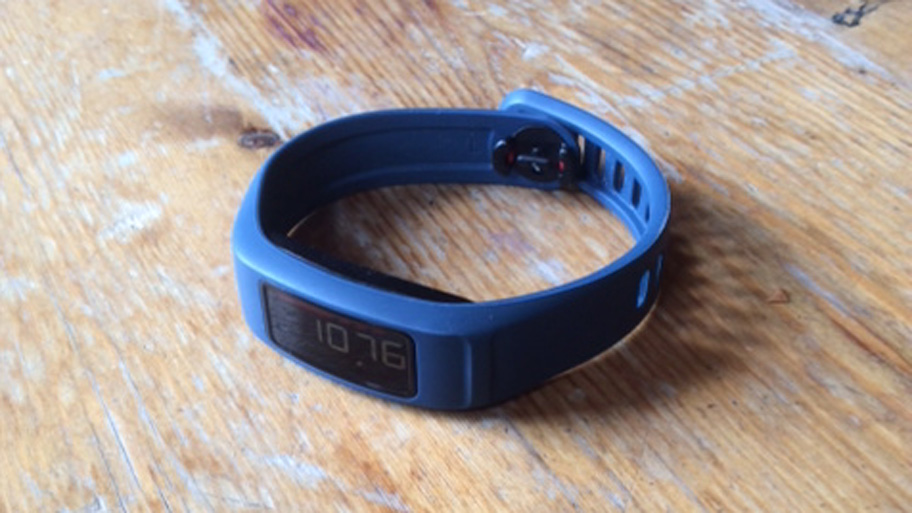TechRadar Verdict
A neat little fitness tracker whose battery life and waterproofing means you never need to take off. And if it were just that bit more useful and more comfortable, you would never want to take it off either. Still, a solid effort for the price.
Pros
- +
Year-long battery life
- +
Accurate enough step counting
- +
Waterproof to 5 metres
Cons
- -
Not the comfiest thing
- -
Sleep and run tracking a waste of time
- -
The app could offer more useful analysis
Why you can trust TechRadar
I've been living with the Garmin Vivofit 2 for a couple of months now, and I've become quite attached to it. I've tested a few of these step-tracking wearables now and ended up frustrated and, so some of the smart bands have told me, with a high heart rate.
For the sake of my 'wellness', I've decided that perhaps the best way to approach them is by setting expectations low and being pleasantly surprised. So, whereas in the past I've unboxed these things and expected them to be a doctor, personal trainer and life coach strapped to my wrist, with the Vivofit 2 I started out with the thought of "this is quite a nice waterproof watch for £90" and went up from there.
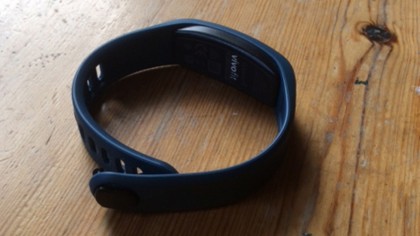
By now, with these bangles, I know that the calorie counting will be wrong, unpredictable and inconsistent and that sleep analysis is pretty much a joke across the board (I've come to look at the slumber-reading element of wearables with fondness, a bit like those x-ray specs you'd get in old joke shops – of course they don't work, but it's a bit of harmless fun!), so all I really want is consistent step counting with a graph.
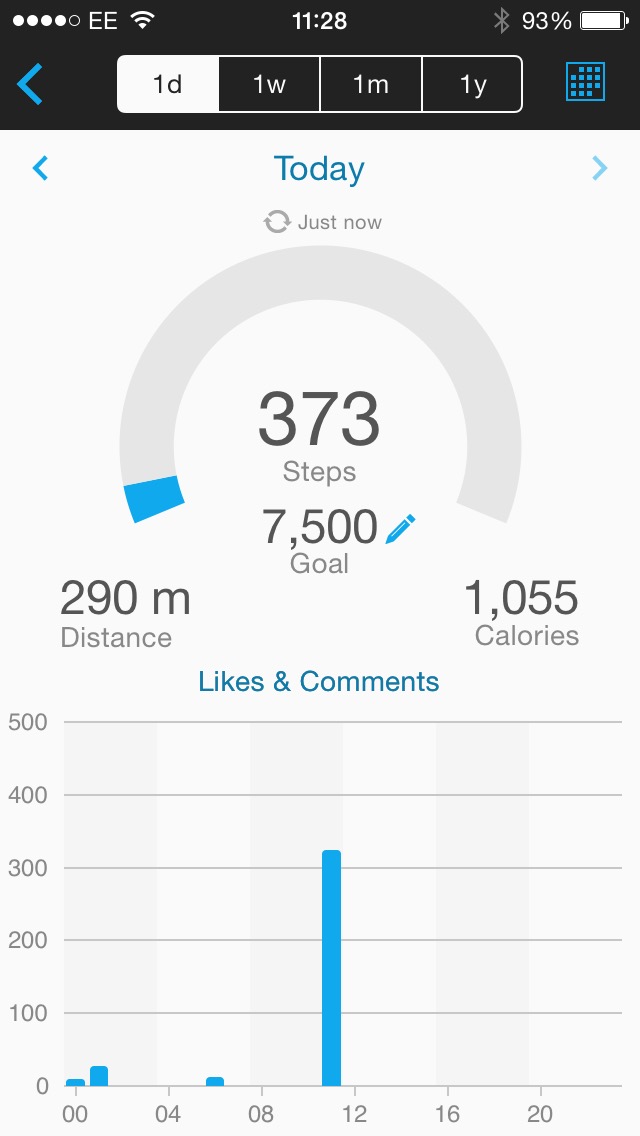
This doesn't have to be accurate to NASA standards, but if I've spent the day walking around Paris I want the graph to be more virile than if I've spent the day in bed (both done for the good of this review).
And with these parameters set, the Vivofit 2 delivered; the screen is big and bright, it can survive in the drink and it doesn't need charging.
A decent app as standard with affordable fitness wearables would be nice too, but oh well. So yes, not too bad, and here's all that in more depth…
Battery and screen
Battery? Nah, mate, this thing stays on for a year, straight out the box. No weird lose-it-and-you're-stuffed charger; no taking it off, ever – not even in the shower, as it's waterproof to five metres; no leaving it in a hotel. Brilliant. By their very nature, all wearables should be like this.
Sign up for breaking news, reviews, opinion, top tech deals, and more.
I loved the screen. Although it might seem a bit old-fashioned to have a big rectangle embedded into the strap, it made me happy.
The whole design is a bit 1970s futuristic space vision, but the digital numbers are bright (in night and mist), bold and easy to read.
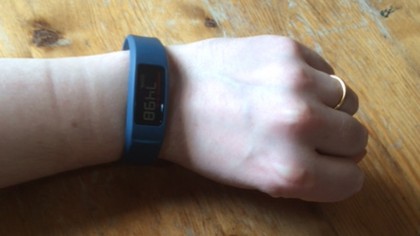
It also has a nice button, which you press to control everything. A band such as the Garmin Vivosmart looks more modern, with a screen smoothed seamlessly into the strap, controlled by gentle tapping, but it's temperamental and hard to read at times. This is just a big old plastic screen with a button, on a rubber strap: winner.
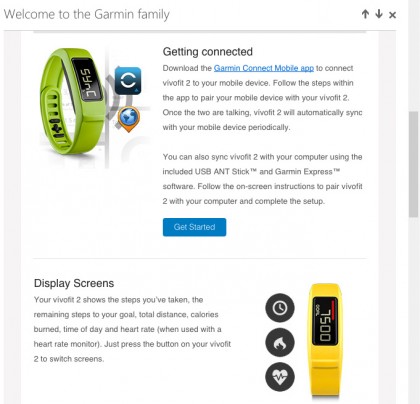
It's worth noting, here, some details about the set-up. One button does it all, meaning you have to hold down for some things, double press for others, etc.
It can be tricky working out what to do straight out of the box, but when you download the Garmin Connect app and fill in your details, you get a handy email explaining all that very clearly.
